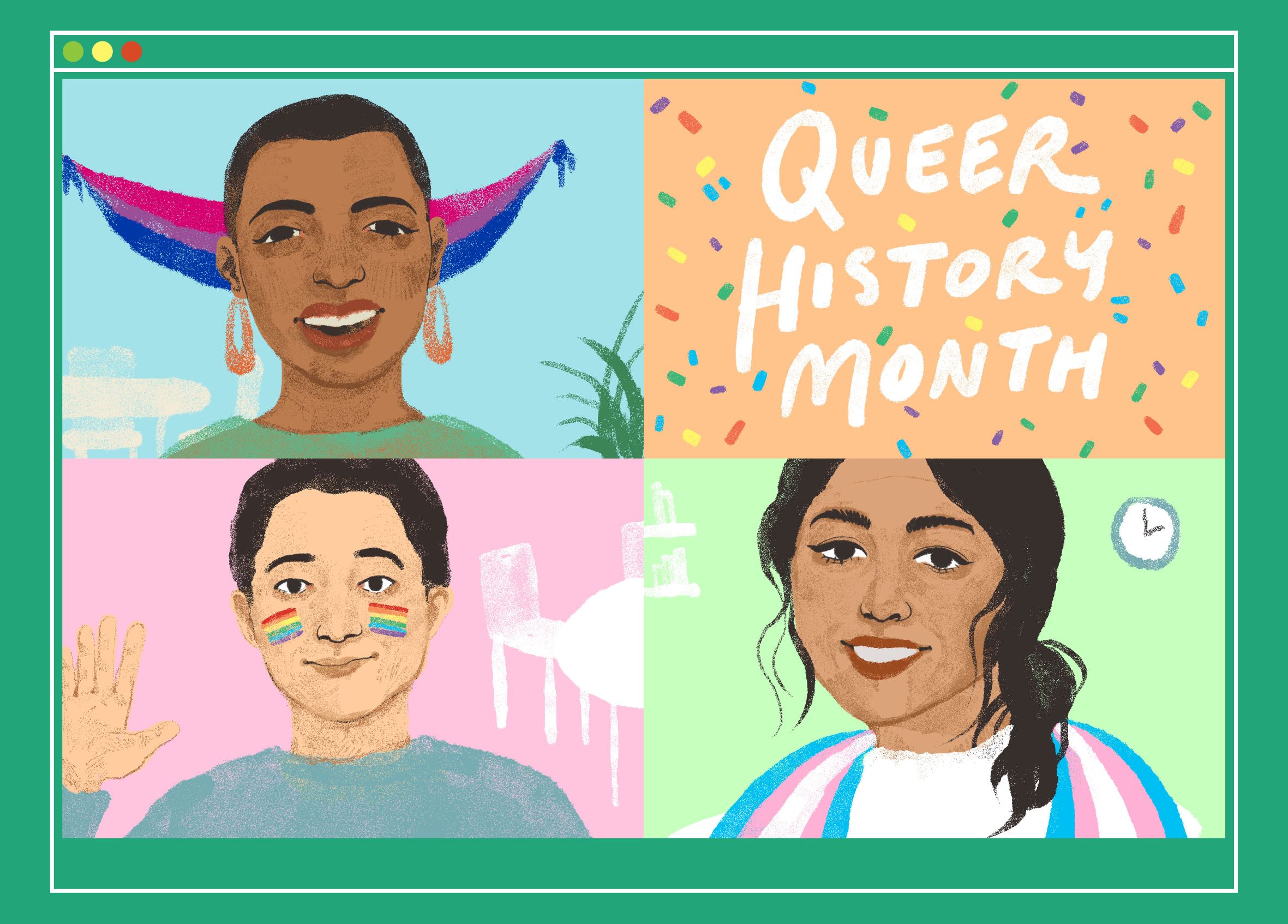Despite Red Zone restrictions in Montreal, McGill’s Queer History Month is still in full swing. Created in 2018 by the Associate Provost’s Equity and Academics office, this year will mark its third edition, centred around the theme of “Love stories of solidarity and resilience.” For the first time, all of the events are taking place online.
Meryem Benslimane, coordinator for Queer History Month and Equity Education Advisor, has worked to make the best of this year’s limitations. However, Benslimane believes that going fully online has broadened the impact of Queer History Month’s events.
“[Organizing online] had the positive impact of making our events more accessible. Anyone in the world can actually register and attend our events, [and] we are not limited in space or capacity,” Benslimane said. “We have a maximum of 500 attendees on Zoom. In the past in-person editions, we could only hold events for 100-120 people at a time.”
Events this year include collaborations with McGill’s Black Students Network, McGill’s Institute for Gender, Sexuality, and Feminist Studies, and the Simone de Beauvoir Institute at Concordia on a panel specifically dedicated to Black queer and trans activism, which will take place on Oct. 20. This year, Queer History Month will feature keynote speaker Dr. Chamindra Weerawardhana, a transfeminine scholar and international 2SLGBTQIA+ rights activist from Sri Lanka. Tickets are still available for several events on the Equity McGill Website.
Around 40 people, including volunteers, organizers, and speakers, are involved in planning this year’s Queer History Month. Angela Campbell, Associate Provost (Equity & Academic Policies), looks forward to contributing to this year’s events.
“I am delighted to be part of McGill’s annual Queer History Month celebrations this October,” Campbell said. “While equity work is necessarily forward-looking with a view to ongoing advancement, we cannot lose sight of the importance of knowing our histories. This knowledge of the past will equip us to move forward in our efforts centring on the goals of equity, inclusion, and justice.”
Another emphasis of Queer History Month is intersectional solidarity, or solidarity between individuals with distinct experiences of oppression, especially when it comes to the specific issues that 2SLGBTQIA+ BIPOC individuals face. Benslimane also reiterated the integral and extraordinary work of Black queer and trans activists in advocating for 2SLGBTQIA+ rights.
“[Everyone involved in Queer History Month] wants to create online spaces of connection and community, of support and solidarity, especially in the global context of anti-Black and anti-Indigenous racism,” Benslimane said. “It is very important to remember that Black queer and trans activists, especially Black trans women, have always been and still are at the forefront of advancing 2SLGBTQ+ rights throughout history.”
During her keynote presentation on Oct. 7, Dr. Weerawardhana also emphasized the importance of intersectional activism in light of the Black Lives Matter movement, as well as the role of non-Black members of the 2SLGBTQIA+ community in addressing anti-Black racism in Canada and across the world.
“In our own lives, many of us have fought or are fighting tougher battles than the ongoing pandemic,” Dr. Weerawardhana stated. “Those of us who are non-Black simply cannot afford to water down our activism as the news cycle moves on. We need a strong focus on intersectional feminist advocacy. In Canada, this means a commitment to challenge all forms of intersecting racial, gender-based, and other injustices, with a special focus on Indigenous Peoples’ struggles for justice and dignity.”
Ultimately, Queer History Month is not only about history, but about the future of 2SLGBTQIA+ communities. Especially this year, when many people are facing social isolation, it is imperative to maintain and foster connections so that these communities may continue to thrive. Benslimane emphasized the importance of belonging and fundamentally, the freedom to love, that lies at the heart of Queer History Month.
“While we cannot be together in person this year, we hope people do find that sense of belonging, love, and resilience through our events and beyond Queer History Month,” Benslimane said. “The goal of Queer History Month [has always been] to raise awareness, advance education, and increase visibility of 2SLGBTQIA+ communities by recognizing their history and contributions, building bridges, and bringing together McGill students, staff, faculty, and alumni and Montreal community members, and that is what we hope to do this year again.”









